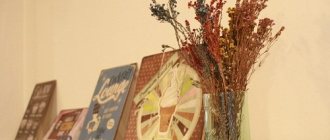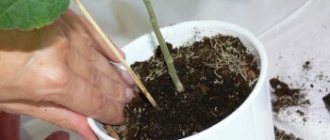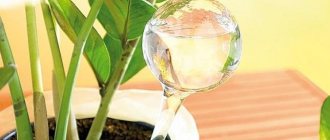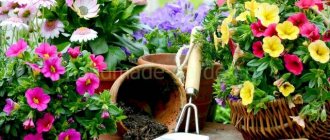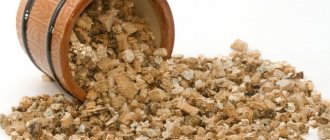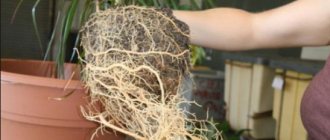Plants traditionally symbolize life, growth and progress. It is hardly possible to call a house fully cozy if it does not have a single indoor flower. You've probably noticed more than once how easy it is to breathe in a room where there are a lot of plants. This happens not only because they absorb carbon dioxide, releasing oxygen and humidifying the air. The masters who created such a wise art as Feng Shui believed that indoor flowers help balance the biofield of a person and his home. This is all because plants, like humans, use Qi energy and at the same time serve as its source. Plants in an apartment not only improve the Qi of the room, but also create additional Qi.
The benefits of indoor plants according to feng shui
According to Feng Shui, indoor plants symbolize life and refresh the atmosphere in the home, they symbolize prosperity and health (certain types of plants can relieve headaches), and their effect can be aimed at neutralizing certain areas of the home environment. Plants are truly amazing creatures: they have a special relationship with each person, it turns out that they are able to understand and take care of us in difficult times. They can even influence us and the relationships in our home! Properly selected flowers in the house improve not only health, but also a person’s character.
Plants can be used as protective agents to promote good circulation of Qi in living spaces, to stimulate Qi in the corners of rooms, or to enliven unused space and deflect negative influences. In order for plants to feed the space with positive energy, and not take it away, they need to be “settled” correctly. Plants placed on the window process negative energy, and in the corners of the room they do not allow Qi to stagnate. When selecting plants for Feng Shui living rooms, you must take into account the size and shape of the plant. Plants with sharp leaves contain more yang and make the qi energy move faster. Plants with rounded leaves reflect more yin qualities.
Precautions in selecting certain colors
Ivy will lead to divorce
If ficus simply does not allow you to build relationships, then ivy can destroy them. Many astrologers believe that this plant drives men out of the house, promotes divorce and can even cause accidents. Therefore, spouses are not recommended to grow ivy and other plants with similar energy (aglonema, scindaptus, birch) in an apartment.
Cactus will provoke quarrels
A large number of cacti in the house can cause excessive aggressiveness. Needle plants, according to psychologists, are associated with negativity and can influence the emotional state of household members. Extroverts are especially susceptible to this. Cacti pose no threat to calm introverts.
Source: www.yapokupayu.ru
Rules for placing indoor plants in the house
The general requirements for the placement of indoor plants in the house are very simple. Plants are directly associated with the wood sign, so they feel better in the southern part of the room, thereby strengthening the Fire element. Plants should not be placed in places where the Earth element predominates. This is primarily the center, southwest and northeast. You should not clutter the room with a large number of pieces of furniture, plants and decorations. It is not recommended to place furniture or other interior items in the center of the room; you can only place a low table.
Indoor plants in the living room
The living room, as the center of the house, should be spacious, not cluttered with unnecessary things. This is the basic rule of Feng Shui. Among the plants there are also barometer plants. For example, Tradescantia can only grow in places that are well lit with a predominance of positive energy, so if negative energy begins to predominate in such a place, the plant may die. In its place it is recommended to put a so-called vampire plant, for example, ivy, rose or fern, and Tradescantia should be moved to another place. They are very useful in offices and offices.
Indoor plants in the dining room
In the dining room, where yin traditionally predominates, thorny plants should not be placed: they change the balance towards yang and prevent those sitting at the table from relaxing. Plants of soft green tones with smoothly rounded leaves are ideal for living here.
Indoor plants in the kitchen
The kitchen is associated with the element Water - a symbol of prosperity, therefore, according to Chinese ideas, the appearance and order in the kitchen reflect the well-being of the family. It is very important not to clutter the kitchen with many small items and keep it tidy and clean. So, the location near the window will be as comfortable as possible for the plant to live in.
Indoor plants in the bedroom
Here, as a rule, there should be a calm and peaceful environment, because this is a place of rest.
To improve the internal state after a hard day at work, the beginning of yin should prevail - soft tones of furniture and accessories, dim light and rounded shapes. In the bedroom, it is necessary that the furniture does not contain sharp corners directed towards the bed. Cacti are useful only during daytime sleep: they have a good ability to draw out negative energy. According to other versions, it is not recommended to have plants in the bedroom at all - there they spoil a woman’s love happiness and lead to quarrels and infidelity between spouses.
Indoor plants in the hallway
As for the hallway, large objects and interior decorations should be placed there - this will distract the attention of those entering from the interior rooms.
The ideal solution, if the space and lighting of the hallway allows, would be a large decorative plant in a tub. It is also appropriate to place a large plant in the hallway when the front door of the house opens to the stairs leading to the owners’ rooms - to slow down the flow of Qi and to direct those entering in the opposite direction.
Indoor plants in the office
In the office, in the place of active mental activity, the beginning of yang should prevail. Achieving this will not be difficult, because office furniture is usually made in a rectangular shape, and office equipment can independently stimulate Qi energy. Feng Shui widely recommends the use of plants and flowers to lift and expand the flow of energy. This is an excellent countermeasure against any kind of sharp edges outside and inside the house. To neutralize a protruding sharp corner, a small pot of ivy-like plant forms is often simply placed. Just add climbing plants with oval leaves to the house - and peace and tranquility will reign in the house. Plants are considered carriers of energy, acting like sponges, absorbing and refreshing Qi energy.
Plants with positive energy
Pelargonium, more often called “grandmother’s geranium,” is a surprisingly powerful and warm indoor plant. No wonder the village houses of grandmothers are decorated with this multi-colored pet. Even without knowing the Chinese teachings of Feng Shui, Russian elderly women intuitively place geraniums on the windowsills of their houses. Popular beliefs attribute magical powers to this unpretentious plant. The Chinese, following the teachings of Feng Shui, endow geranium with strong protective properties. She is able to collect negative energy, cleansing a person’s aura. It is enough to communicate with a houseplant for a while to feel a surge of strength. Thanks to its biological properties, geranium purifies the air from harmful substances. Has a beneficial effect on the human nervous system. However, you should not place it near the bed. The essential oils contained in its leaves can cause severe headaches.
Myrtle or myrtle tree, the main assistant in creating family harmony according to Feng Shui. It is not without reason that tales and legends of different nations attribute divine origin to this indoor plant. Myrtle oil is an expensive and valuable product. It is successfully used in folk medicine to treat many diseases of the genitourinary system.
When the relationship between spouses cools down, you need to put this tree in the room. It will help to establish lost understanding and revive old feelings.
Chlorophytum has the amazing property of absorbing harmful substances and purifying the air. He does the same with energy. The teachings of Feng Shui advise placing a pot of this plant in the kitchen, close to burning gas and electrical appliances.
Tradescantia will become the best indicator of energy. As soon as the negative energy of Shi begins to predominate in the house, the plant turns yellow and sheds its leaves. An attentive housewife will immediately notice problems with her indoor friend.
Crassula or Money Tree will bring material well-being if placed in the southeastern sector.
Arrowroot is good for offices and a teenager's room. It helps you decide on a profession. Promotes a state of concentration and encourages a philosophical understanding of the world around us.
Lemon is a healer and nurse for sick people. He takes care of physical and spiritual health. Lemon essential oils perfectly disinfect the air in the room.
Aloe is a famous healer. In folk medicine, it has no equal in the treatment of the gastrointestinal tract, purulent and infectious diseases. According to Feng Shui, this handsome man does an excellent job of absorbing negative energy and radiation from household appliances.
Ficus suppresses aggression. Cleans and protects apartment residents from negative external influences. But Feng Shui strictly prohibits placing it in the marriage zone. This indoor plant has a detrimental effect on the relationship between spouses.
Begonia will help those people who find it difficult to find a common language with their surroundings.
Neither enemies nor friends
Blaming plants for their own failures and transferring the blame for circumstances onto them may come to the mind of a person who does not love and does not understand living nature.
Every bush and every pebble has its own purpose. Whether they will bring benefit or harm depends on how a person uses his knowledge and relationship to the world.
Among the plants there are those that are not recommended to be kept in the house.
Fern. At night, this green friend absorbs huge amounts of oxygen. What to do, nature arranged it so that it is at night that the appetite of this indoor plant wakes up. But if you put a tub of it in the office, you can be sure that excellent friendly relations will develop in the team. And there will be no problems with clients and visitors.
The orchid is a real vampire among plants. This proud beauty shows her bitchy nature by absorbing a person's life force. The residents of the apartment in which she moved in will experience fatigue and dissatisfaction. Feng Shui recommends placing an orchid away from the place where a person works.
The cactus, like most thorns, has a strong, heavy energy. But it works great in the wealth zone. In office premises it suppresses aggression. Feng Shui recommends installing several pots of this indoor plant near computers. Harmful radiation feeds the cactus.
Creepers should not be hung in the bedroom. This is a symbol of loneliness not only according to Feng Shui.
The Chinese rose or hibiscus is the exact opposite of the ordinary rose. Like the orchid, hibiscus feeds on human energy.
How to place indoor plants according to directions
Plants are used in places where there is a threat of stagnation of qi energy, or in places that have not yet been used. Plants are an excellent way to weaken the influence of sharp corners and neutralize striking arrows; they are especially good for covering the edges of bookcases or sharp corners of office furniture. Plants with sharp leaves have a predominant yang energy and accelerate the movement of qi. Plants with rounded leaves have more yin properties. Since the element of plants is wood, they are most useful in the southern part of the room, where they strengthen the influence of fire.
Since plants are associated with wood, they should not be placed in the southwest, northeast and center, since these sectors relate to soil. They are best suited for the living room and dining room, but in the kitchen and bedroom plants should be used with great care.
Cacti and other thorny plants should not be placed near people, and in any case they have no place in the southwest, since this sector is responsible for family relationships. However, some books claim that thorny plants on windowsills deter burglars.
Artificial plants are less beneficial, but they can also stimulate chi energy if kept clean and tidy. It is necessary to regularly clean them from dust. Dried plants are not as beneficial, they should be kept out of reach, and ideally their use should be limited to the colder seasons.
Begonia
This is an ever-blooming plant. Begonia has positive energy and brings happiness, harmony, material well-being and success to the home. It is recommended to choose begonia with white flowers for the living room, and with red flowers for the bedroom to revive sexual emotions. But in a house where there is an unmarried woman, it is better not to have a flower, because it can neutralize love. Begonia plays the role of a filter in the home. A very important property of the plant is its ability to kill streptococci.
Selecting indoor plants based on their energy properties
Plants with active energy
: yucca, cactus, coconut palm, anthurium. They have no place in a bedroom or nursery; place them, for example, at the entrance to a house or apartment, and they will protect you from evil forces.
Plants with calm energy:
aloe, begonia, camellia, guzmania, hoya, soleirolia.
They will give you self-confidence, put you in a peaceful mood, create harmony, and promote good sleep .
Plants-neutralizers
: ficus benjamina, ivy, monstera, philodendron, nephrolepis (fern). Eliminate bad energy or transform it into beneficial energy for a person.
Resuscitating plants:
bamboo, crassula, cyclamen, bougainvillea, cyperus. They restore strength, promote a good mood, and give vigor. Bamboo influences a person’s character, endowing him with its main qualities - the ability to “take a hit” and remain evergreen, that is, young.
© Ogudin Valentin
Male and female flowers
Indoor plants with masculine Yang energy are citrus trees, dracaena, chlorophytum and others. On the women's side there are blooming violets, orchids, begonias and geraniums. You can distinguish them by simple characteristics: Yin plants spread along the ground, their leaves are round or oval. Yang plants are directed upward in their growth.
Recommendations:
- The house should have indoor plants, both male and female. This is necessary for energy balance. But depending on who lives in the apartment, the amount will vary. Girls - more Yin plants, guys - Yang.
- Ikebana, herbariums and any dried plants should not be stored at home. They absorb positive energy and deprive the inhabitants of the house of vitality. Gifted bouquets should be thrown away immediately after the first signs of wilting appear.
- Male flowers are placed in rooms with active energy. This could be an office, work area, living room. Place women's in rooms with soft energy - bedroom, children's room, hallway. There should be no plants in the kitchen at all.
You can't keep flowers near your bed. In general, it is enough to put 1-2 flower pots in the bedroom, no more. Plants next to the sleeping place will absorb the vitality of the sleeper and will not allow him to rest peacefully.
Flowers are the remains of heaven on earth...
In China, it is believed that every person must master seven arts in his life, one of which is floriculture. No wonder, in addition to their beauty, they give an incredible atmosphere and health. You remember from biology lessons that plants purify the air and house flowers are no exception.
Some of them are capable of clearing a room of harmful volatile organic compounds by 89%. And while modern inhabitants of megacities spend money on special filters and humidifiers for apartment air, plants perform a similar function a hundred times better. Plus they improve design indicators and concentrate flows of positive energy, according to the teachings of Feng Shui.
Before we begin to describe the plants, I would like to say a few words about the fact that arranging flower pots in a row will, of course, be useful, but not entirely effective. But our window sills are often lined up in exactly this way. According to Feng Shui, each type of flower should be responsible for a specific area of the room. According to the Bagua map, the sectors are distributed as follows:
- directly on the south side is the "Glory" area;
- nearby on the southwestern side is the “Love” zone;
- the western sector is responsible for children's development, their health and a bright future;
- the northwestern sector, like the owner’s right hand, tries to help him in everything;
- but the northern sector works for the benefit of the career growth of housing residents;
- the northeastern sector is a good place to study. Here is the “Knowledge” sector, which is best suited for perception;
- the next one clockwise is the eastern sector – the “Family” sector;
- and behind it is another very important zone - “Wealth”, which is given the south-eastern direction.
I described all this to you so that later it would be clearer how to place certain plants in the house.
Important Rules
Like any living organism, plants emit energy and absorb it from the environment. In order for this energy exchange to benefit the “green pets” and all household members, you need to know several nuances.
Healthy Feng Shui flowers give life-giving power to the surrounding world, and especially intensely during the period of awakening, growth and flowering. The abundance of diseased flowers creates a negative background around itself, and this is another reason to treat your pets as soon as possible!
According to the teachings of Feng Shui, flowers fill women with vitality and strengthen the feminine energy “yin”, the deficiency of which is fraught with hormonal and gynecological problems. The awakening of new life, flowering, growth are a reflection of the primary feminine principle, and caring for flowers gives a woman renewal, spiritual harmony and peace! About which flowers have the energy of “yin” and “yang”, you can Which flowers have the energy of “yin” and “yang”.
Note Feng Shui (Feng Shui, or feng shui) is an ancient Taoist practice that teaches how to live in harmony with the environment. Feng Shui implies the presence of “qi” energy, the flows of which permeate everything around! By directing them, we can create an energetic imbalance, or, conversely, achieve balance. There is a whole science about energy zoning, or, more simply put, the organization of living space. Everything, from the arrangement of rooms in an apartment to interior details, influences the creation of a favorable atmosphere. Flowers, as real sources of energy, are given a special place in teaching!
It is believed that home flora feels great only in favorable emotional conditions. So, if there are constant scandals and a tense atmosphere at home, the flowers are not healthy. If peace and love reign in the family, green pets delight with lush foliage and flowering! In this regard, it is not recommended to deal with flowers in a bad mood. If your day is not going well, put off caring for them until tomorrow!
✿



